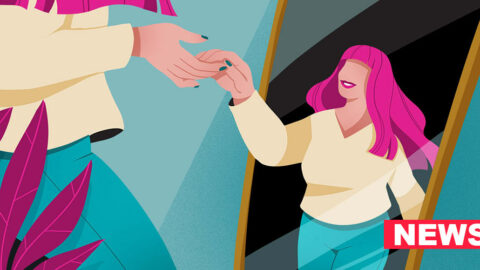- A 22-year-old freelance journalist, Divya Kandukuri has taken an initiative to provide proper mental health treatment to the people of her community.
- A study says that marginalized communities mostly don’t get proper mental health services from medical organizations.
India is currently witnessing a serious mental health crisis since the COVID-19 outbreak in 2020. Recent studies have reported several psychological conditions among different age groups during the pandemic.
Divya Kandukuri, a 22-year-old freelance journalist, has started an initiative named Blue Dawn to help the marginalized community deal with their mental health problems. “The value of a man is reduced to his immediate identity and nearest possibility,” said Divya Kandukuri. She shared that when she was going through a lot of trauma, she felt a lack of support around her. She suffered from extreme loneliness during the low phase of her life. Lack of support during the crisis encouraged her to provide mental health treatment to the marginalized community.
She said, “Everybody was facing their own struggle within the community. By community, I mean, the marginalized and the oppressed. I have been saved by dear ones at crucial points where I was giving up.” Within two months after starting her initiative, Blue Dawn received immense support from many medical professionals and doctors. Many renowned organizations and medical officials agreed to lend support to others in the community – Bahujans, the marginalized and the oppressed.
“I took the name Blue Dawn because the color represents our community politics, our anti-caste politics, Phule-Ambedkarite politics. Through this initiative, we are not just talking among ourselves, we are also trying to gather resources and get medical professionals on-board who can offer free or affordable healthcare,” Divya said. She feels that topics related to people’s mental health in our country are anyway abysmal. She also expressed her fear regarding the backward castes and the queer not getting proper psychological treatment when needed.
“They are not treated well in government hospitals. I have seen it, but well, nobody reports on it. To escape this treatment, they come to private hospitals. They have to compromise on so many other essential expenses to be able to afford treatment in private clinics and big hospitals. Even in private hospitals, doctors aren’t sensitive; they are casteist and queerphobic,” she adds. Divya always wanted to help the oppressed people from her community to access proper mental health treatment.
Divya observed that most people in India neglect their psychological well-being due to lack of mental health awareness. The high prevalence of social stigma toward mental illness prevents people from accessing the right support and services.
The World Health Organization (WHO) reported that around 56 million Indians suffered from depression, and another 38 million Indians suffered from an anxiety disorder during the pandemic in 2020. According to a study by the International Journal of Applied Sociology, marginalized people with disabilities often don’t receive proper treatment and experience various forms of discrimination that eventually affect their health and reduces their access to health services. This calls for action to eliminate mental health stigma so that more people from marginalized sections of society can access mental health support and care.




























